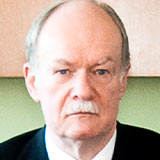Over 30 billion devices—including things like home thermostats and appliances—will be connected to the Internet by 2020, observes Pat McKeough, editor of TSI Network.
That means you’ll be able to control them with a smartphone; set them up to adapt to factors like outside temperatures and have them notify you if, for example, there is smoke or carbon monoxide in your home.
This is known as the “Internet of Things.” The best way to profit from it is with companies that already power much of the Web’s infrastructure.
Intel (INTC) is the world’s leading computer chip maker. Its products power 80% of all personal computers.
The company continues to benefit as businesses upgrade their computers after Microsoft stopped supporting its old Windows XP operating system. Strong demand for Internet services has also spurred sales of server computers.
As a result, Intel’s 2014 sales rose 6.0%, to $55.9 billion from $52.7 billion in 2013. Earnings jumped 21.7%, to $11.7 billion, or $2.31 a share, from $9.6 billion, or $1.89.
Intel continues to invest heavily in new chips. It spent $11.5 billion (or 20.6% of its sales) on research in 2014, up 8.7% from $10.6 billion (or 20.1% of sales) in 2013.
A large part of this spending is going into chips for smartphones and tablet computers. Intel installed its chips in 46 million mobile devices in 2014, well ahead of its target of 40 million.
However, it had to offer subsidies to get manufacturers to switch from other chips, causing its mobile chip business to lose $4.2 billion in 2014. But Intel expects this business to earn a profit in 2015, thanks to upcoming chips that will sell without subsidies.
Intel’s strong balance sheet will let it keep investing in new products. It holds cash and investments of $21.2 billion, or $4.37 a share, and its $12.1 billion of long-term debt is just 7% of its market cap.
The company will probably earn $2.37 a share in 2015 and the stock trades at 14.3 times that forecast. The $0.96 dividend yields 2.8%. Intel is a buy recommendation.
Subscribe to TSI Networks here…
More from MoneyShow.com:










